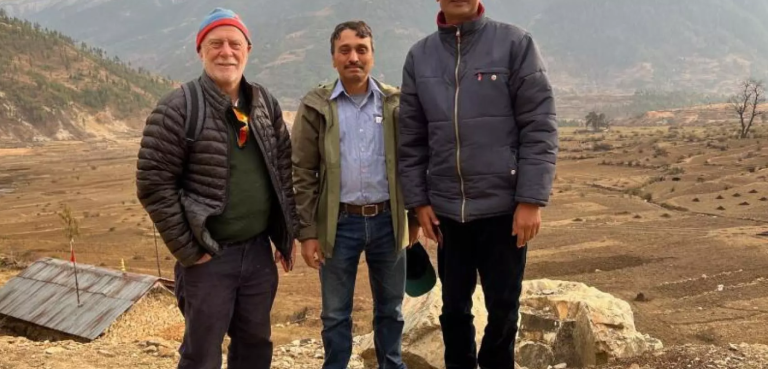A rare and economically significant variety of rice, prized for its pinkish hue and grown in the remote highlands of Nepal, has been rescued from the brink of extinction. Jumli Marshi rice, a staple for communities in Jumla, Nepal, has faced a critical threat due to disease. However, through the efforts of Professor John Witcombe from Bangor University, the strain has been safeguarded with new, disease-resistant varieties.
Professor Witcombe, renowned for his work in plant breeding and food security, has previously helped secure the livelihoods of over five million smallholders across India, Pakistan, and Nepal. His recent project in Nepal aims to protect the Jumli Marshi rice, which is not only a vital food source but also a cultural symbol for the region.
Jumli Marshi rice, cultivated at an altitude of 3,050 metres above sea level in far-western Nepal, is known for its unique taste and high nutritional value. It is richer in fibre, protein, and essential minerals compared to other rice varieties grown in Nepal and is particularly beneficial for individuals with diabetes. However, the strain has been increasingly vulnerable to blast fungus, a destructive plant disease, leading many farmers to abandon it in favour of more resilient crops.
In response to this threat, Professor Witcombe has collaborated with Nepal’s government-funded rice breeding programme to develop three new disease-resistant varieties of Jumli Marshi. These new strains are designed to withstand the blast fungus and will soon be made available to local farmers and smallholders.
The process of developing these new varieties has involved working closely with indigenous farmers, who have played an integral role in testing and adapting the new strains to local conditions. This approach ensures that the rice varieties are well-suited to the high-altitude environment and meet the preferences of local farmers. This method of plant breeding not only improves the resilience of the rice but also enhances its acceptance and spread within the farming community.
Jumli Marshi is notable for being the first variety in Nepal to undergo advanced farmer trials using DNA markers. These markers, developed by Professor Witcombe and his colleagues at Bangor University in collaboration with a UK commercial partner, have played a crucial role in breeding more resilient rice strains.
Professor Witcombe highlighted the significance of this achievement, stating, “This is the culmination of 13 years of collaborative work with Nepalese rice breeder Resham Amgai. The native Jumli Marshi rice, known for its cold-tolerant gene, has been a cherished and profitable variety. The fact that it was becoming susceptible to disease was deeply disappointing for local farmers.”
He continued, “By introducing a disease resistance gene from a variety first released in the Philippines in 1985, we have developed three new disease-resistant versions of Jumli Marshi. The farmers of Jumla have been very supportive of preserving this local variety, and this development is a game-changer for them. It will significantly benefit farmers in this challenging high-altitude growing environment.”
The introduction of these new rice varieties is expected to revitalise Jumli Marshi cultivation, helping to secure the livelihoods of farmers and preserve an important part of Nepal’s agricultural heritage. The work of Professor Witcombe and his team underscores the importance of international collaboration in addressing food security challenges and preserving traditional crops.
The successful development of disease-resistant Jumli Marshi rice represents a significant milestone in agricultural science and highlights the crucial role of targeted research and local involvement in addressing global food security issues.

